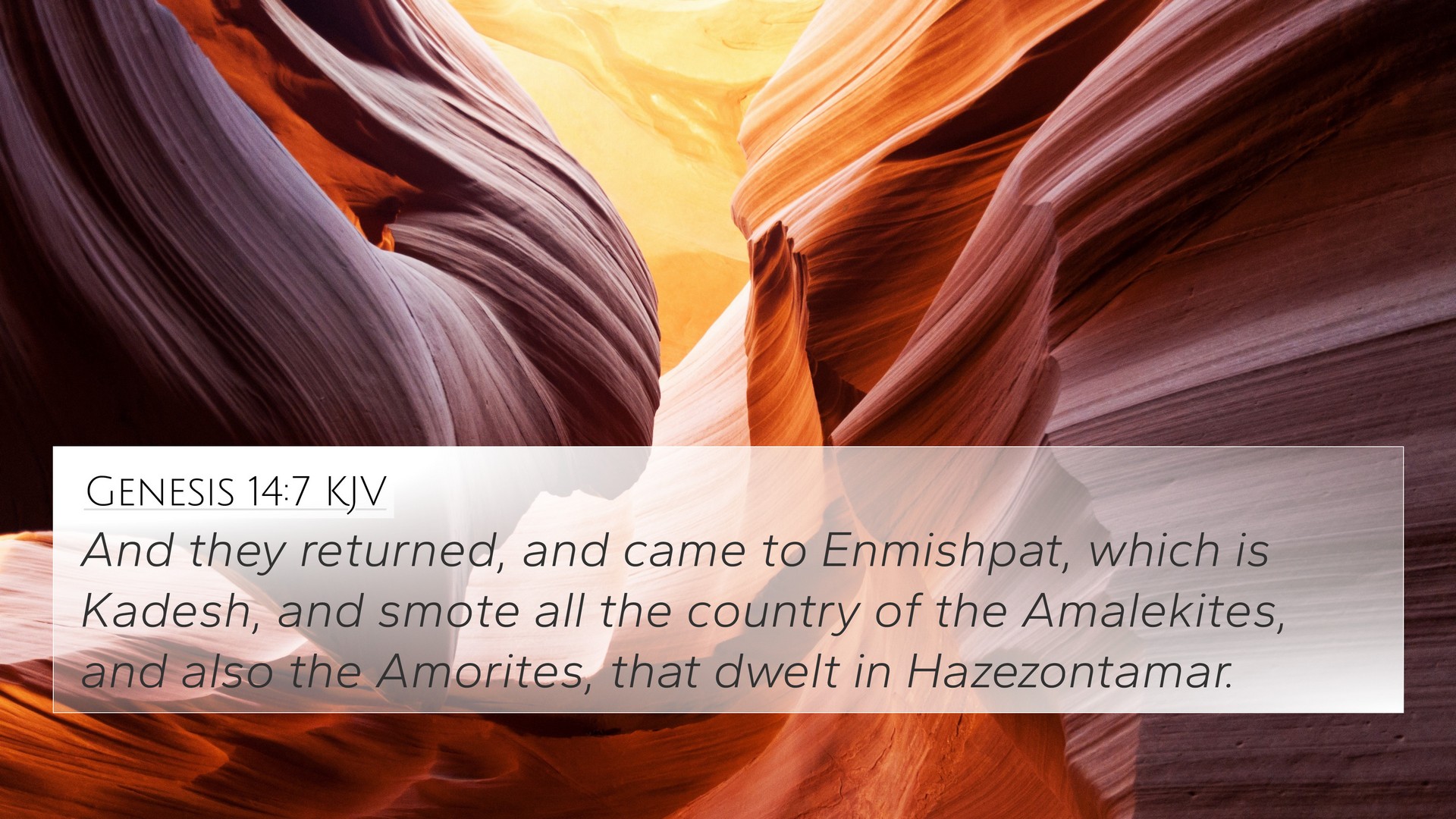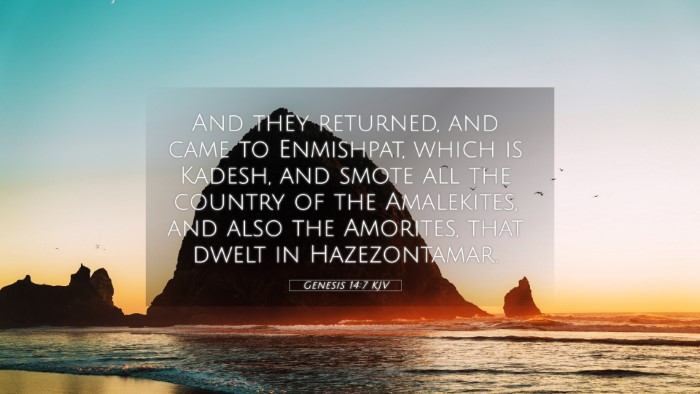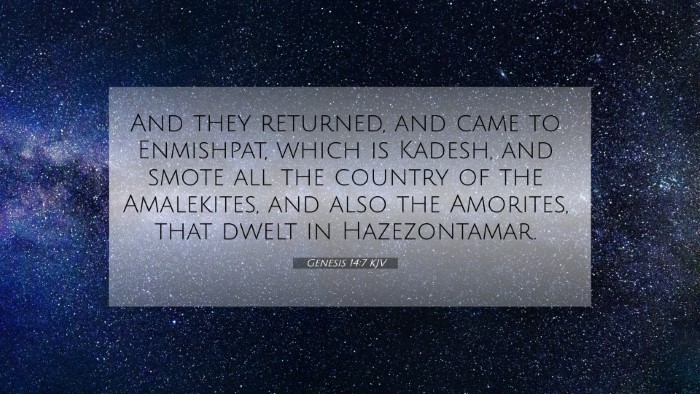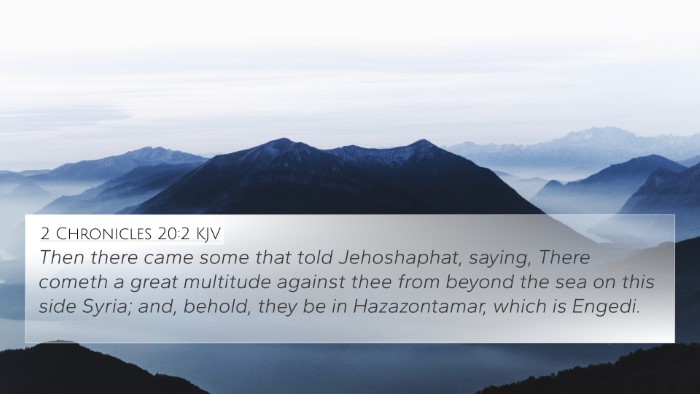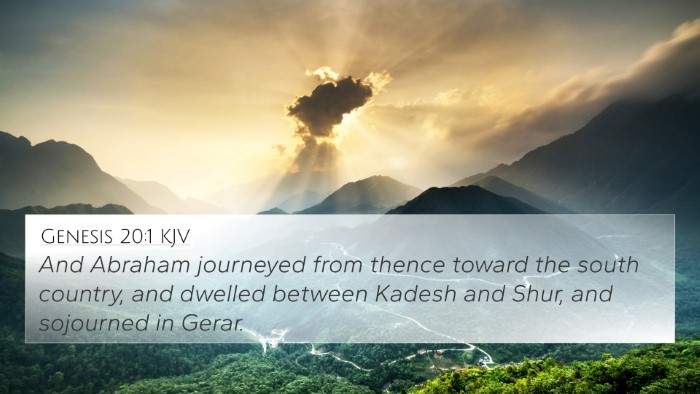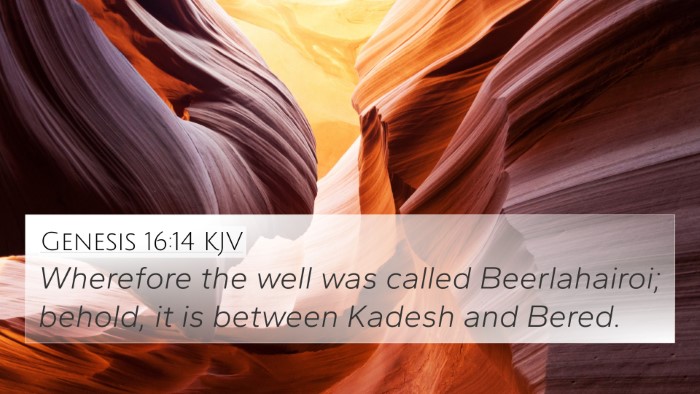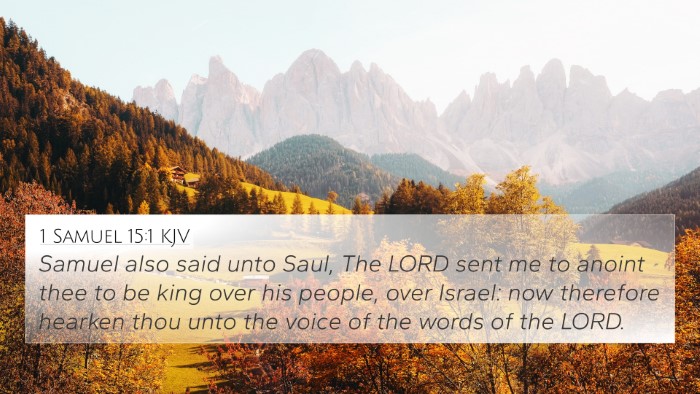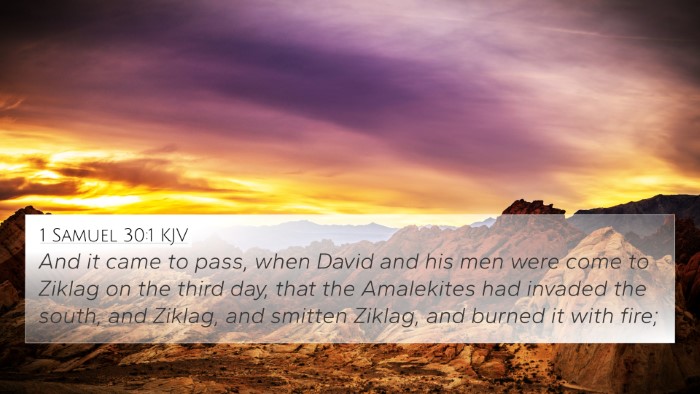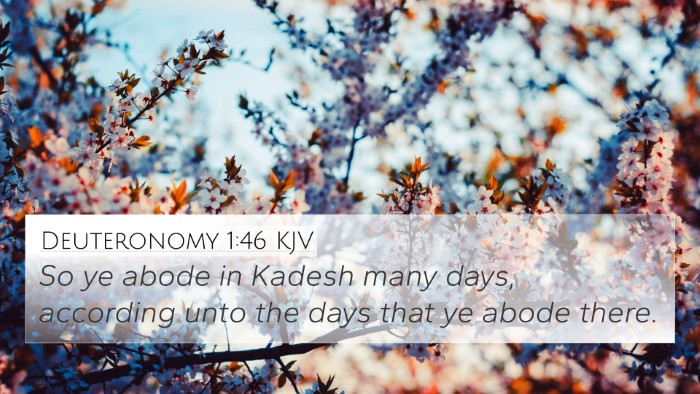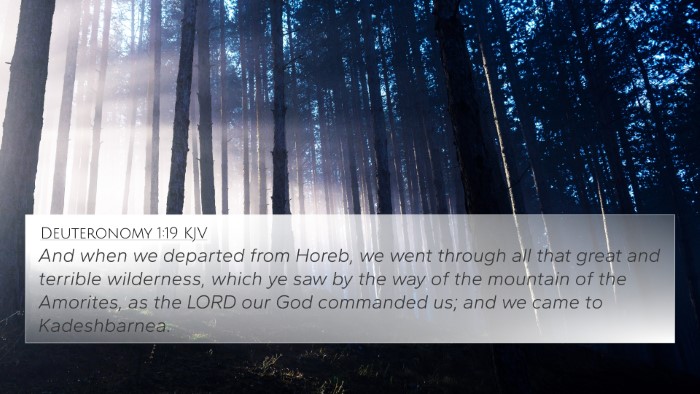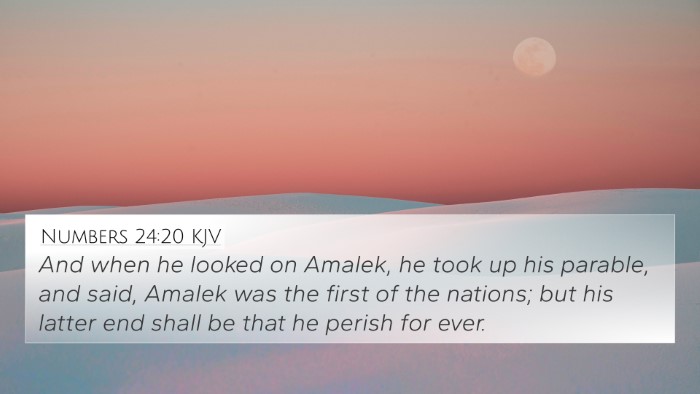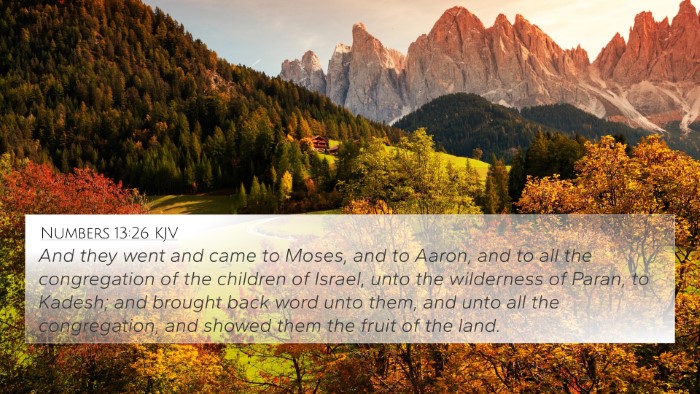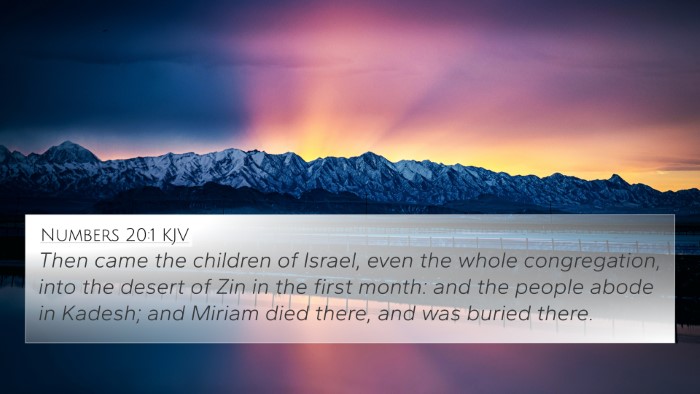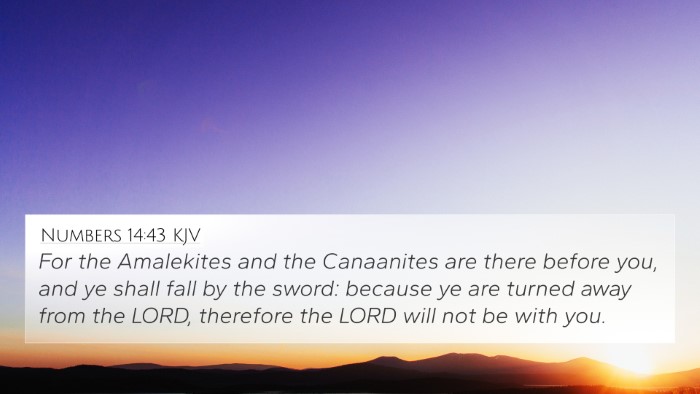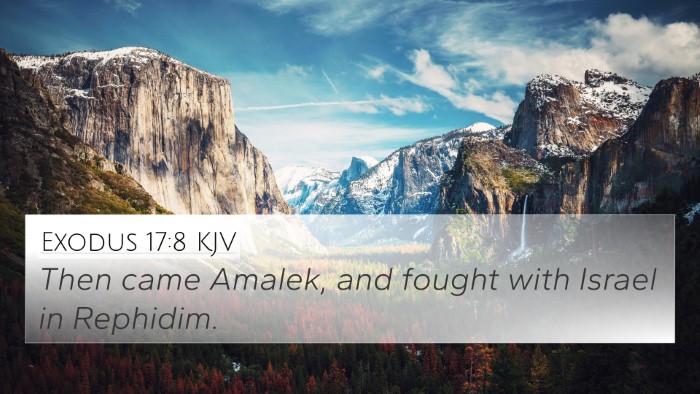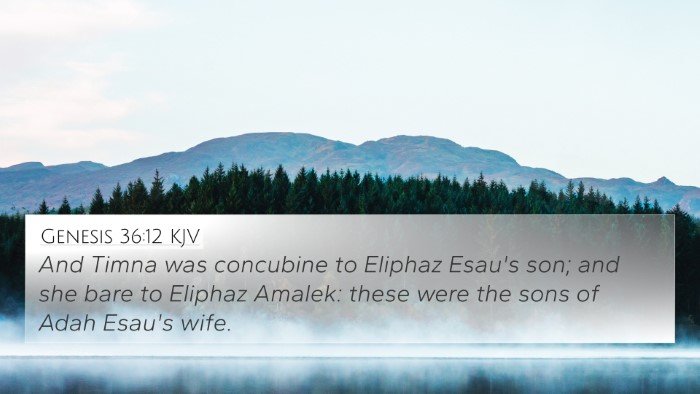Understanding Genesis 14:7
Bible Verse: Genesis 14:7
Genesis 14:7 states: "Then they turned back and came to En Mishpat (that is, Kadesh), and defeated all the country of the Amalekites, and also the Amorites who were dwelling in Hazazon Tamar."
Analysis of Genesis 14:7
This verse recounts a significant moment in the narrative where a coalition of kings, led by Chedorlaomer, reverses their course to engage in battle against the Amalekites and Amorites. The verse explicitly marks a geographical shift and indicates a military campaign.
Insights from Historical Context
According to Matthew Henry, this verse highlights a moment of strategic importance in the patriarchal narrative, showing how the dynamics of power and alliances played out in the ancient Near East. The mention of En Mishpat and Kadesh shows the geographical context of the conflict, providing insights into the territorial challenges faced by the Israelites.
Albert Barnes adds that the defeat of the Amalekites, a recurring adversary of Israel, symbolizes a triumph over the enemy, serving as a precursor to Israel's struggle for the Promised Land. This conflict emphasizes the themes of victory and divine providence that recur throughout the Scriptures.
Adam Clarke contextualizes this battle within the overall narrative of Genesis, pointing out that the events reflect God’s sovereignty in guiding the affairs of nations. Clarke suggests that the mention of specific tribes reveals the extensive historical enmity that would characterize the Israelites' future interactions with these nations.
Thematic Bible Verse Connections
This verse is linked thematically with a variety of others throughout the Bible, specifically those that deal with warfare, conflict, and the fate of nations. Below are some key cross-references that enhance the understanding of Genesis 14:7:
- Exodus 17:8-16: The battle with Amalek reinforces the ongoing struggle between Israel and its enemies.
- 1 Samuel 15:2-3: God's command to Saul regarding the Amalekites reinforces their significance in Biblical history.
- Deuteronomy 25:17-19: A call to remember the Amalekites' actions demonstrates the long-standing conflict and animosity.
- Numbers 14:43-45: This passage illustrates the outcomes of confrontations with enemy nations, tying back to themes of disobedience and defeat.
- 2 Chronicles 21:16-17: Here, the Amorites are mentioned in connection with divine judgment against Israel for their unfaithfulness.
- Isaiah 31:8: This verse reflects on the fate of a rebellious nation, hinting at God's ultimate sovereignty over the nations.
- Jeremiah 49:7-10: A prophecy against Edom, demonstrating God's overarching control in the affairs of nations, including those named in Genesis 14.
- Psalms 83:6-7: Lists nations that conspired against Israel, thus highlighting ongoing enmities that relate back to Genesis narratives.
- Revelation 19:11-21: The final battles in eschatological prophecy can be contrasted with the earlier conflicts in Genesis, underlining a recurring theme of divine warfare.
Connections Between Bible Verses
Genesis 14:7 serves as a link between various narratives and prophecies throughout both the Old and New Testaments. By understanding these connections, readers can better appreciate:
- The overarching narrative of God's deliverance of Israel.
- The significance of geographical names and their prophetic implications.
- The continuity of themes such as divine intervention in warfare.
Cross-Referencing Biblical Texts
Understanding Genesis 14:7 through cross-referencing can enhance one's study experience. Tools like a Bible concordance or a Bible cross-reference guide can aid in tracing these connections. Here are some methods and tips:
- Use thematic studies: Investigate how themes of battle, judgment, and divine providence are interwoven throughout scripture.
- Apply Bible cross-reference systems: Utilize systems that categorize verses thematically or by book.
- Explore chains of references: Look for verses that build on each other narratively or thematically.
- Investigate both Old and New Testament links: Identify how early Biblical events set a foundation for New Testament teachings.
Conclusion
Genesis 14:7 is not merely a historical account; it reflects deep spiritual truths and a connection to God's ongoing plan for His people. As students of the Bible, understanding the layered meanings and connections through cross-referencing enriches our faith and comprehension. By utilizing a Bible cross-reference system, one can delve deeper into God’s consistent narrative of power, judgment, and redemption.
